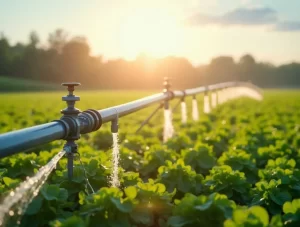Choosing the Best PVC Pipes for Agriculture and Outdoor Applications: A Comprehensive Guide
Which PVC Pipe is Best for Agriculture in India?
PVC pipes are an essential component in modern agriculture, enabling efficient water transportation for irrigation systems. In India, where agriculture is a backbone of the economy, selecting the right PVC pipe is crucial for ensuring long-term performance and cost-effectiveness. These pipes must cater to diverse needs, including high water pressure, chemical resistance, and ease of installation.
Best PVC Pipe Types for Agriculture
There are two primary types of PVC pipes widely used in agriculture: high-pressure PVC pipes and flexible PVC pipes. High-pressure PVC pipes are ideal for large-scale irrigation systems, such as sprinkler irrigation, as they can withstand the intense water pressure needed for effective distribution. These pipes are designed to resist bursting and cracking under high pressure, making them a reliable choice for demanding applications.
Flexible PVC pipes, on the other hand, are better suited for drip irrigation systems. Their ability to bend and adapt to uneven terrains makes them highly versatile. These pipes are easy to install, lightweight, and provide consistent water delivery to crops, ensuring optimal water usage and reduced wastage.
Factors to Consider for Agricultural PVC Pipes
When choosing PVC pipes for agriculture, it’s important to consider the following factors:
- Durability: Pipes should withstand harsh environmental conditions, including UV exposure, fluctuating temperatures, and mechanical stress.
- Chemical Resistance: Agricultural practices often involve the use of fertilizers and pesticides that can react with pipe materials. Opting for pipes compatible with such chemicals ensures longevity.
- Cost-Effectiveness: While high-quality pipes may have a higher initial cost, their durability and low maintenance requirements make them a more economical choice in the long run.
Is it Safe to Plant in PVC?
PVC pipes are often used in gardening and planting projects due to their affordability and ease of use. However, questions about their safety for planting arise from concerns about chemical leaching.
Health and Safety of Planting in PVC
Food-grade PVC is considered safe for planting, as it does not contain harmful additives like phthalates or lead. These pipes are designed to be non-reactive and resistant to chemical leaching, making them suitable for growing edible plants. Non-food-grade PVC, however, may release small amounts of chemicals into the soil, especially when exposed to heat or UV rays.
Alternatives to PVC for Gardening
If you’re concerned about the potential risks, consider using HDPE pipes. HDPE is a safer and more environmentally friendly alternative with excellent chemical resistance. Other options include recycled containers or natural materials like clay pots, which offer sustainability without compromising safety.
What is the Difference Between PVC and uPVC?
PVC and uPVC are two closely related materials, but their differences in composition and properties make them suitable for distinct applications.
Key Physical Differences
PVC contains plasticizers, which make it flexible and suitable for applications like temporary irrigation systems or plumbing lines. uPVC, on the other hand, does not contain plasticizers, resulting in a rigid and durable material. This rigidity makes uPVC ideal for long-term installations that require high strength and resistance to deformation.
Applications of PVC vs. uPVC
PVC is commonly used in applications where flexibility is a priority, such as water delivery lines that need to be adjusted frequently. uPVC, with its higher durability, is better suited for high-pressure systems, underground pipelines, and construction projects. Its resistance to corrosion and chemicals also makes it a preferred choice for agricultural irrigation systems.
Is PVC OK in the Sun?
PVC pipes are widely used outdoors, but their exposure to sunlight raises questions about their durability and performance.
Effects of UV Exposure on PVC
Prolonged exposure to UV rays can cause PVC pipes to discolor, lose flexibility, and eventually become brittle. This degradation occurs because UV rays break down the molecular bonds in the pipe material, reducing its structural integrity over time.
How to Protect PVC from UV Damage
To protect PVC pipes from sun damage, consider using UV-resistant coatings or wraps. Painting the pipes with a UV-stabilized paint can also provide an additional layer of protection. For applications requiring long-term sun exposure, invest in UV-stabilized PVC pipes, which are specifically designed to resist the harmful effects of sunlight.
What Makes PVC Pipes Ideal for Agriculture?
PVC pipes are popular in agriculture due to their efficiency, cost-effectiveness, and durability. These pipes can withstand harsh environmental conditions and ensure the optimal transportation of water over long distances.
Advantages of PVC Pipes in Agriculture
PVC pipes are lightweight and easy to install, making them suitable for even the most remote farming locations. Their corrosion resistance ensures long-term durability, especially in areas with saline or mineral-rich water. Additionally, PVC pipes offer excellent compatibility with fertilizers and pesticides, ensuring the safety of crops and soil.
Applications in Different Irrigation Systems
High-pressure PVC pipes are ideal for sprinkler irrigation systems that require consistent water pressure. Flexible PVC pipes are commonly used in drip irrigation systems, delivering water directly to the root zones of plants, thus conserving water and reducing waste.
How Does PVC Compare to Other Pipe Materials?
PVC pipes are often compared to other materials such as HDPE, PEX, and galvanized metal pipes. Each material has its strengths, but PVC strikes a balance between cost, performance, and availability.
PVC vs. HDPE Pipes
HDPE pipes are known for their flexibility and resistance to impact, making them ideal for high-stress environments. However, PVC pipes are more cost-effective and easier to install. PVC also offers superior UV resistance compared to HDPE, making it suitable for prolonged sun exposure.
PVC vs. Metal Pipes
While metal pipes are durable, they are prone to rust and corrosion, especially in areas with saline water. PVC pipes, being non-corrosive, offer a better alternative for long-term water transportation and irrigation needs in agriculture.
Innovations in PVC Pipe Technology for Agriculture
The PVC industry continues to innovate, introducing solutions tailored to modern farming needs. These advancements enhance the efficiency and sustainability of PVC pipes in agricultural applications.
Multi-Layer PVC Pipes
Manufacturers are now producing multi-layer PVC pipes with improved strength and flexibility. These pipes are better equipped to handle high water pressure and harsh environmental conditions, making them ideal for large-scale irrigation systems.
Smart Irrigation Systems and PVC Integration
PVC pipes are now integrated with smart irrigation systems that use sensors and automation to optimize water distribution. These systems conserve water and ensure efficient crop management, reducing resource wastage.
Manufacturing Process of CPVC Piping Systems
Manufacturing Process of CPVC Piping Systems
Conclusion
PVC pipes are a cornerstone of agricultural and outdoor water management systems, offering unmatched versatility, durability, and affordability. From high-pressure systems to drip irrigation networks, PVC pipes are designed to meet the diverse needs of farmers and outdoor users. Innovations in PVC technology, such as multi-layer pipes and smart irrigation compatibility, further enhance their utility. While PVC pipes are generally safe and effective, adopting proper handling practices, such as painting for UV protection or using food-grade materials for planting, ensures their long-term performance and safety. By choosing the right type of PVC pipe and maintaining it properly, you can maximize its benefits for your agricultural or outdoor needs.
Frequently asked questions
Here are answers to some frequently asked questions about Fitwell's plumbing services.
High-pressure PVC pipes are suitable for sprinkler irrigation, while flexible PVC pipes work well for drip irrigation systems.
Coating PVC pipes with UV-resistant paint or using pre-stabilized UV pipes ensures durability under sunlight.
Yes, PVC pipes are recyclable and can be repurposed for various applications, reducing their environmental impact.
Food-grade PVC is safe for planting, but non-food-grade pipes may leach harmful chemicals. HDPE pipes are a safer alternative.
PVC pipes minimize water wastage through efficient flow, thanks to their smooth inner surface, making them ideal for irrigation in water-scarce areas.
Stay on the forefront of industry trends by checking out our latest content
Stay ahead with our latest content, designed to keep you informed on the newest industry trends and insights. Discover valuable updates that help you lead in your field.

Trusted uPVC Pipes Manufacturers for India’s Top Contractors
Introduction: The Surge in Demand for uPVC Pipes Among Top Contractors in India The construction and infrastructure sectors in India have witnessed a significant transition toward sustainable and long-lasting materials.

Top Innovations in Agricultural Pipe Fittings for Water Savings [2025]
Introduction to Agricultural Pipe Fittings and Water Sustainability Agricultural pipe fittings play a pivotal role in building efficient irrigation systems, crucial for modern farming practices. By exploring the versatility of

Expeart Tips from MDPE Pipe Fittings Manufacturers to Avoid Failures
Expeart Tips from MDPE Pipe Fittings Manufacturers to Avoid Failures Understanding MDPE Pipe Fittings: An Overview MDPE (Medium Density Polyethylene) fittings, used extensively in gas and water systems, offer strong,
Request a Free Consultation
Get personalized plumbing solutions with a free consultation from Fitwell.

